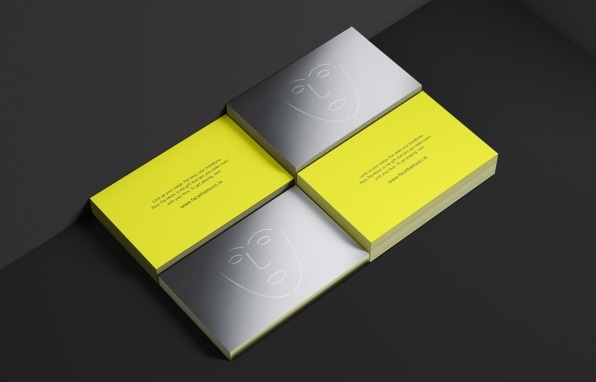This corporate holiday card is a lot cooler than yours
Sure, to “face the music” generally has the negative connotation that you’re about to face something unpleasant. But Pentagram partner Yuri Suzuki and his team have turned the phrase on its head for the design firm’s holiday card this year (part of an annual tradition), which directs recipients to an interactive platform by the same name. It’s a musical “antidote to the gravity of our times.” And it’s all good fun.

[Photo: Pentagram]
The mirrored duplex card has a festive instruction: “Lock up your banjo. Put away the trombone. Face the Music is the gift that lets you make music with your face.” No, the instructions aren’t referring to singing in a weird way. The interaction relies on face-tracking technology to capture shifts in your facial expression, like the shape of your mouth, lift of your eyebrows, and tilt of your head, to produce sound and to change and bend various notes. The relative depths of those movements alter the sounds that you create.
Face-tracking for music and sound production is not new, according to Suzuki, but it is difficult to “focus on precisely what it makes sense to control.” In researching the project, Suzuki found that Wah guitar pedal and U.S. dubstep sounds are “linked to how our mouths behave when we’re speaking.” Face the Music also focuses on movement created by the mouth, whether you open it wide in song or simply crack a smile.
The interaction has four options for varying musical tastes: you can record your voice in dubstep, opera, blues, or sci-fi with four tracks created by Suzuki and his team. And maybe even better, there are four sample videos of Suzuki belting out some tunes—in genre-appropriate attire—for inspiration.
The inspiration for the concept came from Suzuki’s personal experience. “I thought about my own dyslexia—which is purely a problem of connection between the body and the brain—and wondered if facial expressions could actually be a good way to manipulate sound,” Suzuki said. “This project shows that you can make sounds with only a very tiny movement of the muscles in your face.”
The good news is that the sound made by those tiny muscles in your face doesn’t really matter, because the resulting audio is more like a physical instrument than a human voice. And once you’ve recorded your track, you can share the results with friends: don’t keep the festivity to yourself. “Face the Music is the result of a happy experiment, which I hope will bring everyone some much-needed holiday cheer,” said Suzuki. So go ahead and sing your heart out this holiday, no matter your range.
(11)



